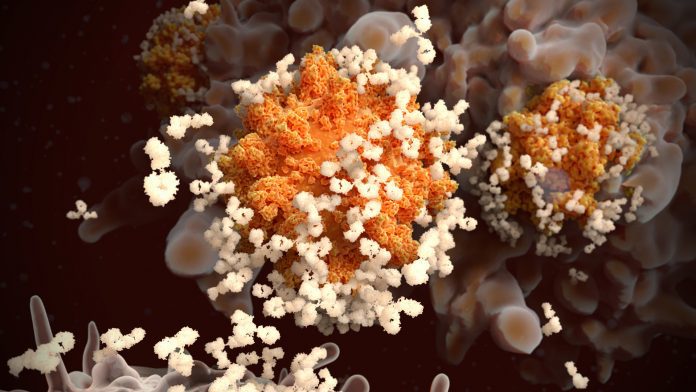
Findings from a research study of B lymphocytes – otherwise known as B cells – may aid in advancing the design of future vaccines.
The research, led by experts at Sweden’s Karolinska Institutet, revealed that B lymphocytes (immune cells that create antibodies) choose between different cell fates to balance the magnitude of the acute immune and memory responses that shield against future threats. The novel discovery may potentially help to optimise current and future vaccines to combat viruses or other pathogens.
The findings of the research are published in Immunity.
The function of B lymphocytes
In order for the body to achieve an efficient immune response to infections and vaccines, it needs antibodies, which are produced by specialised effector B lymphocytes of the immune system. These effector B cells emit substantial amounts of antibodies that combat the acute threat, whereas memory B cells protect from future threats by creating new effector B cells that produce antibodies if the intruder returns. Until now, knowledge of how the immune system regulates the balance between effector and memory B cells has been limited.
In this groundbreaking study, the Karolinska Institutet researchers analysed the generation of B cells closely after infection and vaccination in animal models, discovering that they make crucial cell fate decisions that impact the balance between the effector and memory response.
Taras Kreslavsky, an assistant professor at the Department of Medicine, Solna, Karolinska Institutet, who led the study, said: “We show that there is an extensive early wave of memory cells that seems to be a ‘default’ fate for many activated B cells and that these early memory cells seem to be equally long-lived as the traditional late wave of memory cells.
“The early memory cells are kept as a reserve and can rapidly be re-activated and transformed into effector B cells if the threat increases. This way, our bodies can fine-tune the antibody response proportionally to the threat level.”
Advancing future vaccines
The team ascertained that the early memory response is evolutionarily conserved, meaning that they can potentially influence the response of B lymphocytes in humans through vaccination.
“We believe that rational vaccine design may enable manipulation of the type of B cells that are formed and thus make the body’s defence more effective,” said the study’s first author, Vassilis Glaros, a doctoral student in Taras Kreslavsky’s research team.
The team is now working to investigate how the early B cell response can be modulated and are working to understand the possible outcomes of changing the response between effector and memory cell fates.
Sebastian Ols, the co-author of the study and a doctoral student in Karin Loré’s research group at the Department of Medicine, Karolinska Institutet, said: “The memory B cells are crucial to our body’s defence against evolving pathogens, such as SARS-CoV-2 virus variants which cause COVID-19.
“Our memory cells are better equipped at adapting and parrying new variants than our effector cells are, and it is therefore critical for vaccines to elicit diverse memory B cell responses.”









